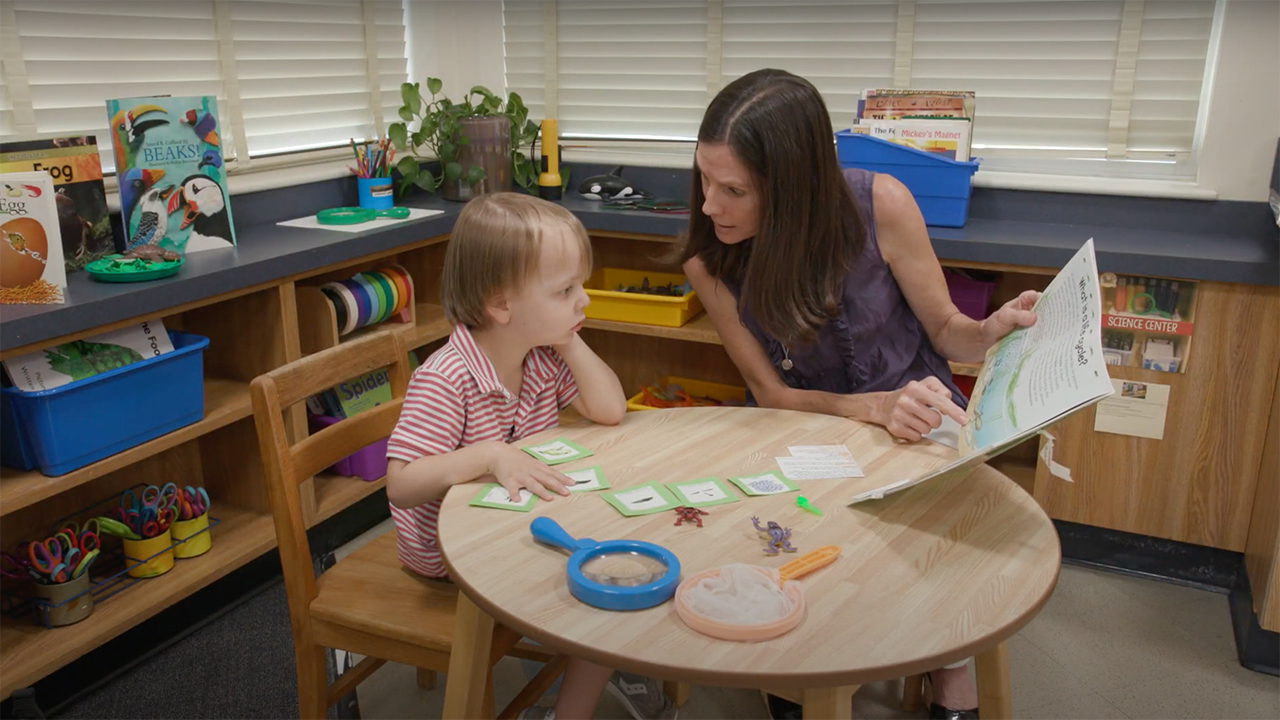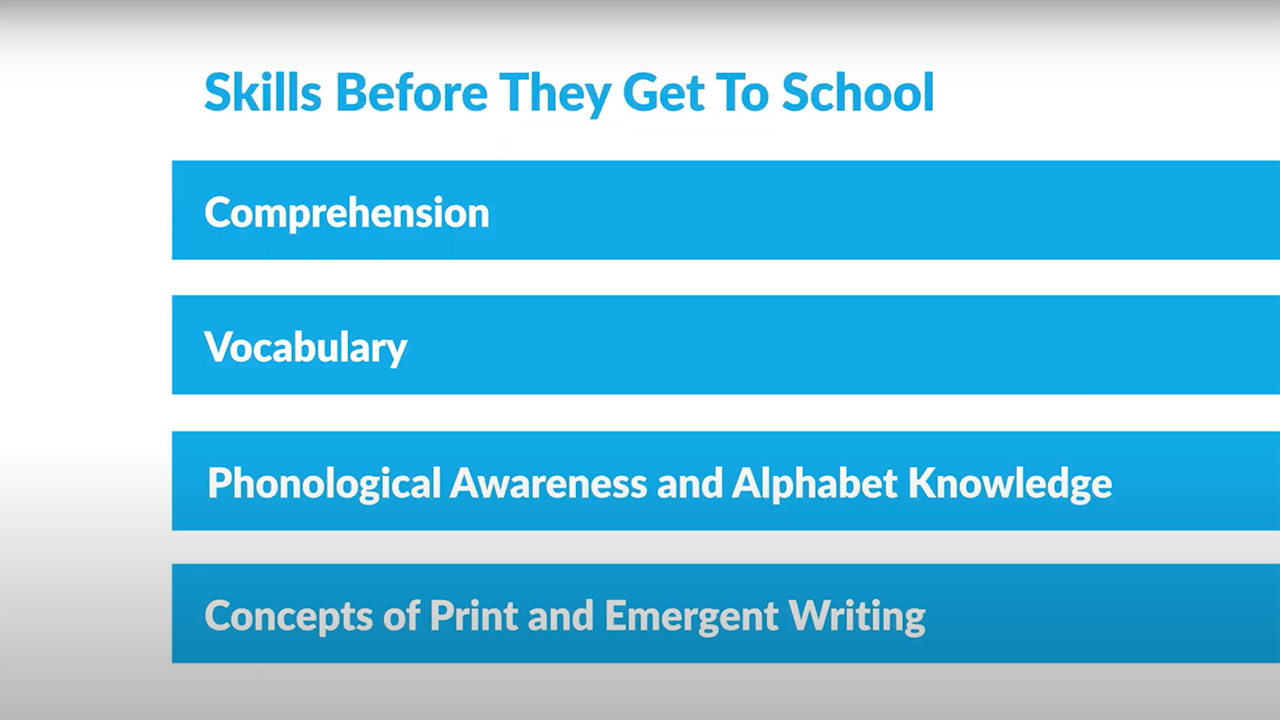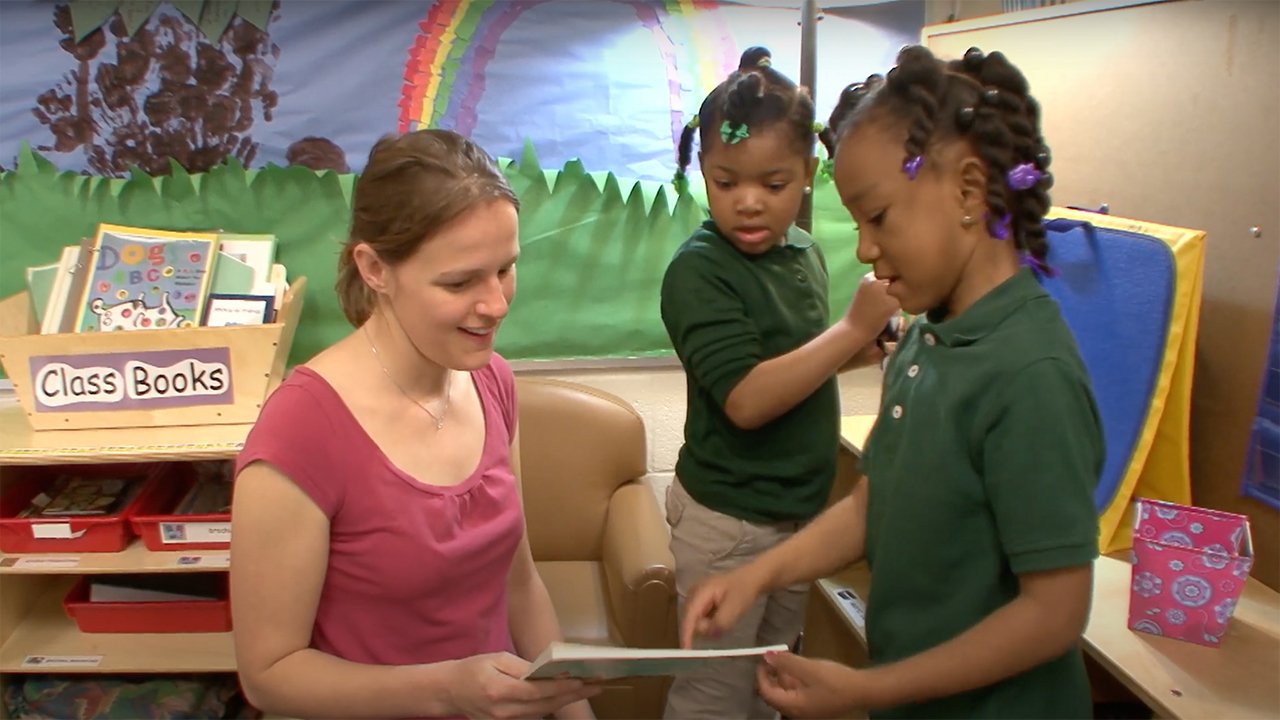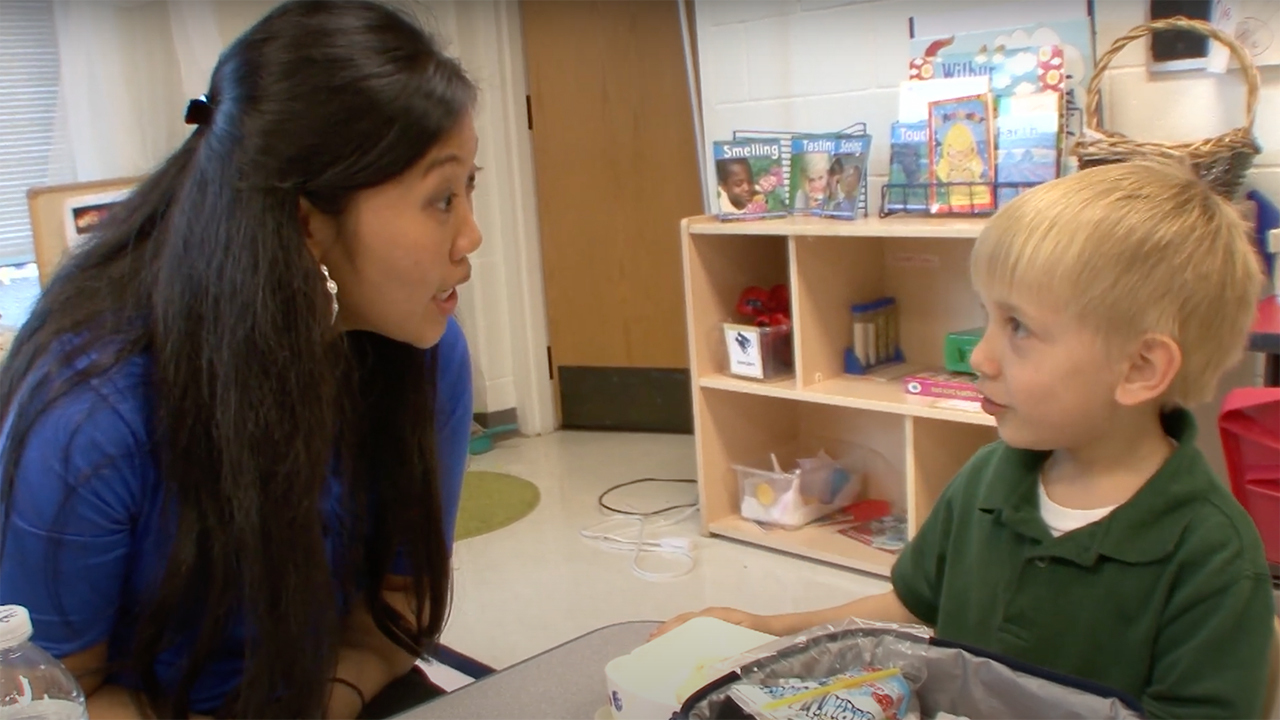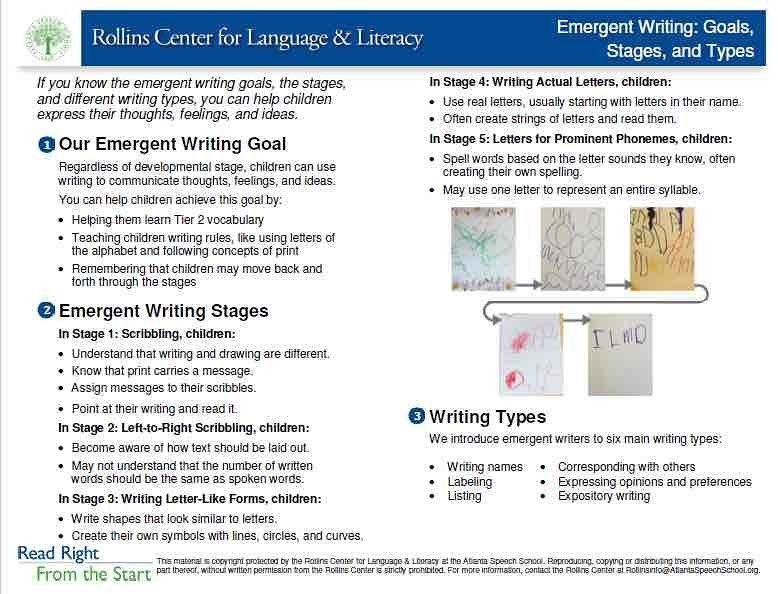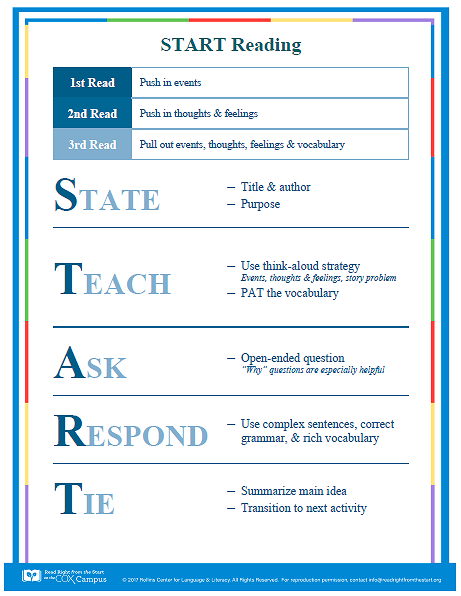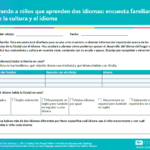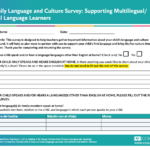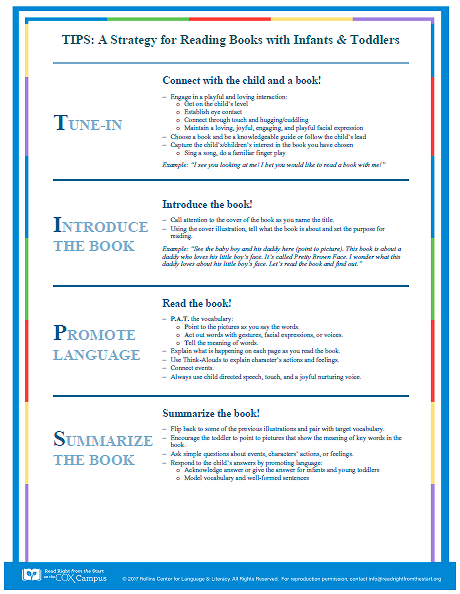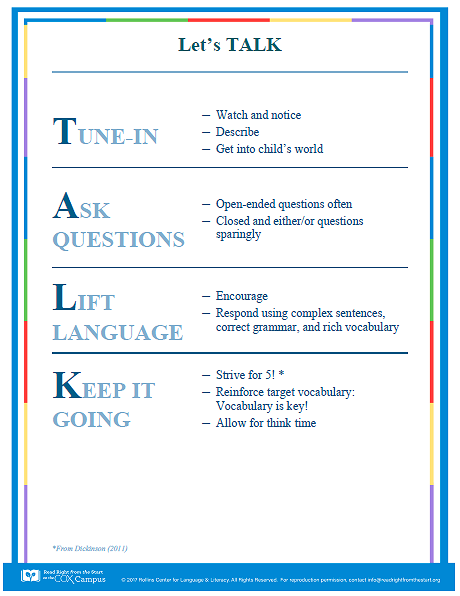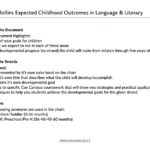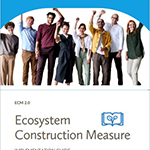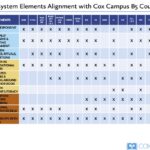An Ecosystem Approach to Developing the Foundation for Reading in the Early Years
The path to becoming a confident, skilled reader begins very early in life… in fact, even before a baby is born. To learn and thrive, develop a deep reading brain, and benefit from an education that promotes choice and a voice to advocate for your rights and a more just society, children must experience a relationships-based, language-centered ecosystem anchored in the responsive interactions they experience with the meaningful adults in their lives. This course supports your understanding of how our Cox Campus B-5 coursework is integrated. It presents an overview of an ecosystem approach to developing the foundation for reading in the early years and introduces nine essential elements, why they matter, and the best practices associated with each element. Also included is the Ecosystem Construction Measure, a tool to assist in monitoring the construction of the ecosystem and supporting goal setting and action planning.
- Cost
- 100% Free
- Time to complete
- 3.5 Hours
- Provides a
- Certificate of Training
Teachers, leaders, instructional coaches, and other professionals caring for and working with children B5 and their families and seeking to understand what children need to experience in the early years in order to have a solid foundation in language and literacy.
At the end of this course, you will:
- Be familiar with the ecosystem approach and the nine essential elements that contribute to a solid foundation in language and literacy.
- Define the elements, explain why they matter, and identify exemplary practices associated with them.
- See the connection between the elements and all relevant B5 coursework on Cox Campus. Learners will also be familiar with the Ecosystem Construction Measure and ready to use it at their sites or classroom, as a guide to setting goals and planning action steps for improvement leading to radical child outcomes.
Although children do not begin their formal instruction in reading until the first years of formal schooling, the path for developing a fluent, confident reader begins early in life, in fact, in infancy. A strong foundation in language and emergent literacy in the early years is required for children to fully be ready to benefit from reading instruction in the elementary years. Teachers of children in the early years play a critical role in supporting the construction of a reading brain and need support to develop the knowledge and skills to implement practices that define a relationships-based, language-centered ecosystem – a learning environment that supports children’s language and literacy development, in preparation for reading.
How it Works
-
Learn at Your Own Pace
You don’t have to finish the course all in one sitting. In fact, we recommend you take this course a little bit at a time, incorporating what you’ve learned in the classroom.
-
Earn IACET CEUs
In order to pass and receive IACET CEUs for this course, you will first need to complete all the lessons, then complete the end of course assessment with a score of 80% or higher.
-
Free Guided Resources
As you go through a course, we’ll introduce you to free resources that will help you implement what you’re learning.
-
Never Learn Alone
Have a question on what you’re learning in the course or how to use a resource? Reach out to the Cox Campus community for advice or to lend a helping hand to others.
Lessons
-
Lesson 1
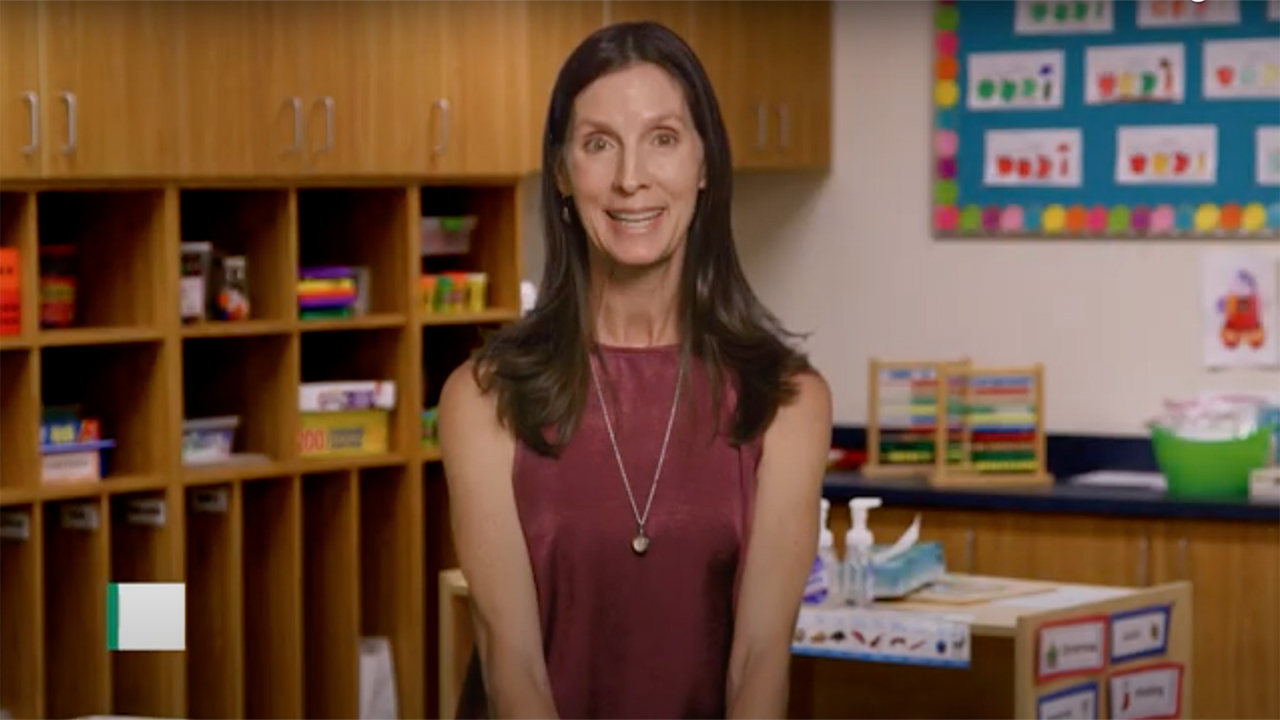
Rolling Out the Welcome Mat!
Duration 12 minutesThe path to becoming a confident reader begins very early in life. In this lesson we introduce an ecosystem approach to developing a foundation for reading in the early years and the important role early childhood teachers play in this development. -
Lesson 2
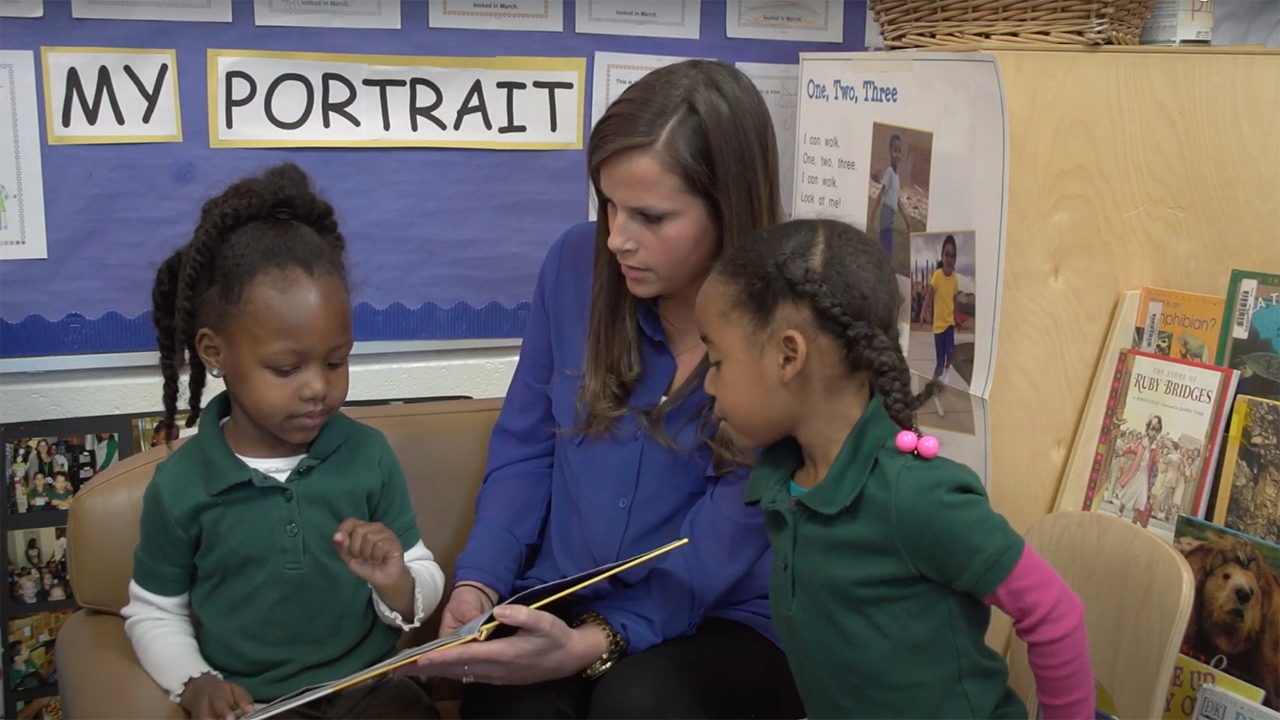
The Sciences Behind the Practices
Duration 19 minutesIn this lesson, you will take a deeper dive into the Rollins theory of change and the sciences behind our practices – the sciences of early brain development, child development and learning, and reading instruction. -
Lesson 3
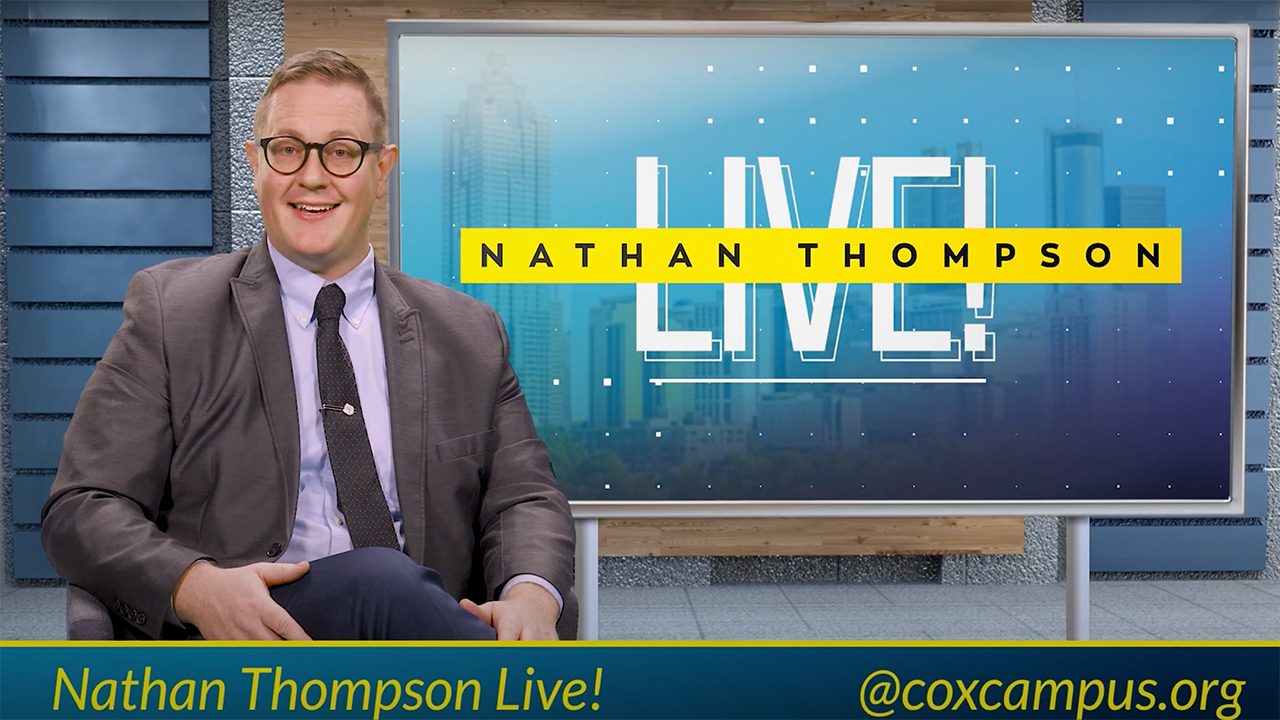
An Ecosystem Approach
Duration 17 minutesWe’ve identified nine essential ecosystem elements that respond to the social, emotional, and learning needs of children. In this lesson, you will take a closer look at the ecosystem approach and get a first glimpse at the elements that define a relationships-based, language-centered ecosystem. -
Lesson 4

The Climate Elements – The ones that make it safe to learn
Duration 47 minutesIn this lesson, you will learn all about the Climate cluster, the elements focused on the social and emotional quality of classrooms, the conditions required to make learning safe for all children. -
Lesson 5

The Content elements – the ones that fill the backpack
Duration 50 minutesIn this lesson you will explore the Content cluster, the elements associated with practices that directly and intentionally build the developmental foundation for language and literacy, to support future readers. -
Lesson 6

The Connections Elements – the ones that deepen and extend learning
Duration 43 minutesIn this lesson, you will learn about the Connections cluster, the elements that enhance teaching by making connections with individual children through progress monitoring, with dual language learners, through additional supports, and with families, through strong partnerships that extend learning into the home. -
Lesson 7

Ecosystem Construction takes off!
Duration 24 minutesEcosystem construction is a collaborative process and does not happen overnight! The Ecosystem Construction Measure is a tool designed to monitor ecosystem development and support self-reflection, supporting you to identify areas for improvement, set goals, and take action! -
Lesson 8

Ecosystem End of Course Assessment
Duration 15 minutesIn this lesson, you will take the end-of-course assessment and post-course survey. You must score 80% or higher to pass the assessment and receive your certificate of completion.
Your Facilitator
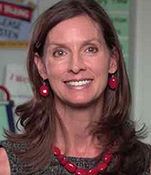
Success Stories
-
"I get excited with teachers when we observe students using Tier 2 words spontaneously in their conversations."CorinePre-K Coach, Consultant, & Speech-Language Pathologist
-
"I have learned so much to take back to my classroom. I’m using these learning experiences to help strengthen the language of each child and I see a difference each day in the children’s language."DeborahTeacher
-
"I enjoy learning new ways to interact with children and to help them become the best they can be and be able to succeed in life to the fullest."SheriTeacher
FAQs
The Rollins Center, of the Atlanta Speech School, in some cases, may allow an instructor, facilitator, content editor or a subject matter expert or consultant with proprietary interests to conduct professional development activities at Rollins events, provided that appropriate disclosure of such interest is made. Disclosure of proprietary interest will be made on course material and at the beginning of the course/learning event, when applicable.
